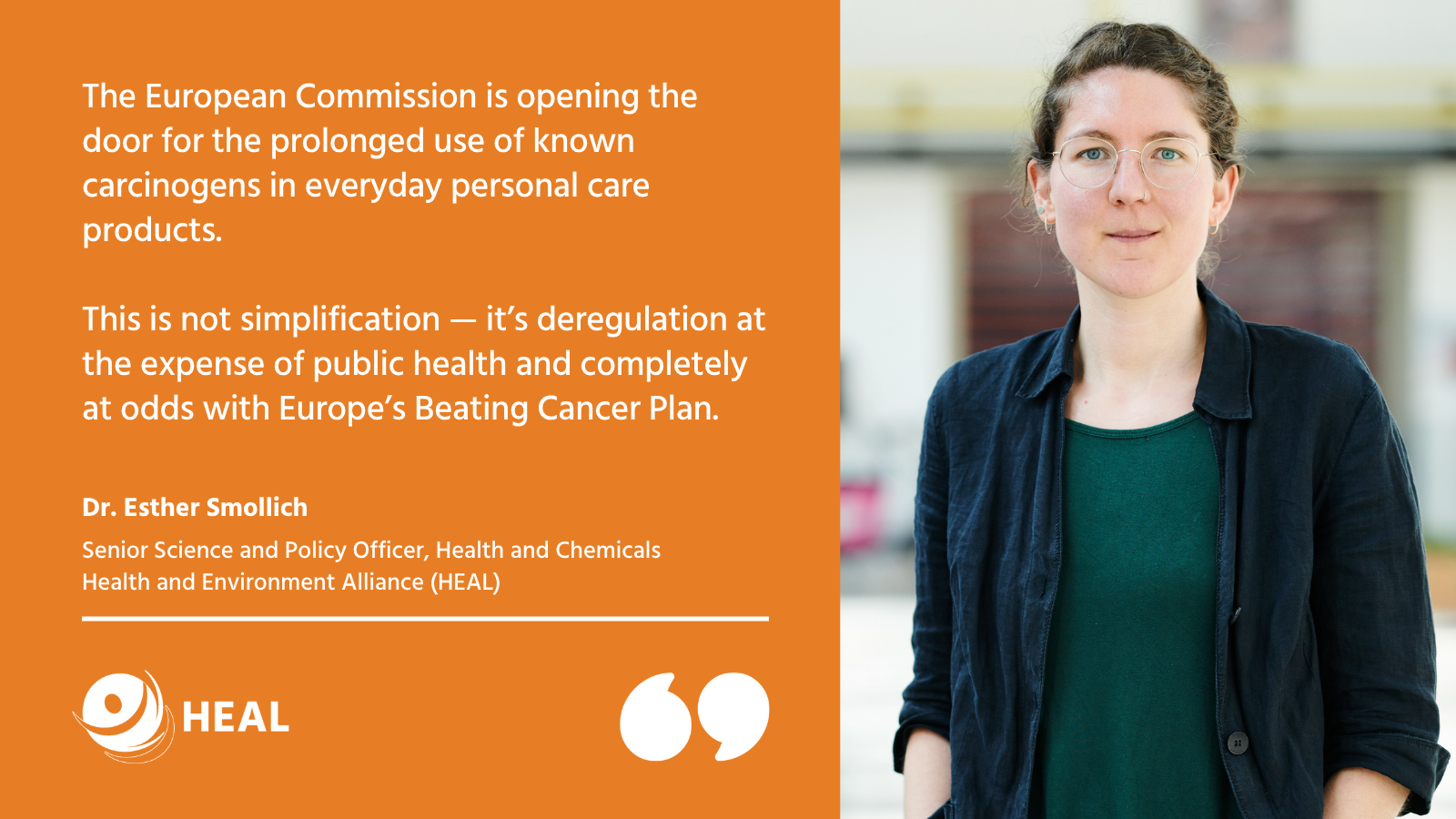Today’s publication of the European Commission’s chemicals omnibus confirms serious concerns: if pushed through the proposal will significantly weaken protections in the Cosmetic Products Regulation, allowing the prolonged use of carcinogens and other harmful chemicals in personal care products.
Award-winning actor Mark Ruffalo and director Todd Haynes are visiting the European Parliament this Wednesday (5 February) to present the film ‘Dark Waters’, inspired by the true story of an environmental attorney who took on the DuPont company in an environmental suit exposing decades of pollution of drinking water with PFAS [1]. The movie shows the harsh consequences of chemicals pollution, which is a reality in the EU too, and should urgently be addressed as a chemical priority under the European Green Deal.
The event in the European Parliament will see panel debates with representatives of the EU Commission, Members of EU Parliament, health and environment groups and Robert Bilott, an American environmental attorney on whose real-life story the film is based. A screening of the film will take place on Tuesday 4 February. The events are supported by TFIP, the European Environmental Bureau (EEB), the Health and Environment Alliance (HEAL), ChemSec and CHEM Trust.
PFAS (short for per- and polyfluoroalkyl substances) are a group of more than 4,700 man-made chemicals and are linked to health impacts such as lower birth weight and size, reduced hormone levels and delayed puberty, thyroid disease, liver damage, and to kidney and testicular cancer. PFAS accumulate and persist in our environment, with the ability for long-range transport far from the emission points. The chemicals have been detected in air, soil, plants and animals across Europe. Production and use of PFAS have been the main sources of environmental contamination linked to these chemicals.
In June 2019, European environment ministers called on the European Commission to develop an action plan to phase out all non-essential uses of PFAS. This was followed by an announcement by the Netherlands to develop a comprehensive restriction.
Genon Jensen, Executive Director of the Health and Environment Alliance (HEAL) said: “Local communities across the world, including those closer to home in Belgium, Italy and the Netherlands, are facing serious health impacts as result of their exposure to PFAS. This demands a direct and game-changing response from policymakers. The Green Deal and Zero Pollution promise are an opportunity for the European Commission and member states to walk the talk and strictly regulate PFAS for people’s health.”
Johanna Sandahl, President of the European Environmental Bureau (EEB) said: “PFAS pollution is out of control in the US and in Europe. If it takes an angry Hulk to wake Brussels up, so be it. The PFAS mess is a symptom of a sickness at the heart of European chemical controls. Industry should not be allowed to sell substances before they are proven safe, but it does. It should not take a decade to catch the dangerous ones, but it often can. Our children should not be born contaminated with replacement substances that are just as bad, but they are. The EU needs to get a grip on a reckless chemical industry, fast.”
Anne-Sofie Bäckar, Executive Director at ChemSec said: “The evidence surrounding PFAS are overwhelming and it’s obvious that business as usual is not an option. Change will not come easy – it will require policy makers to take some uncomfortable decisions. Parts of industry will fight for the old ways, tooth and nail, but a majority will welcome legislation that says a definitive no to PFAS.”
Michael Warhurst, Executive Director of CHEM Trust said: “The EU must phase out all PFAS chemicals as soon as possible, banning the whole group to break the vicious circle of industry moving from one PFAS to the next.”
Annual health costs related to exposure to these chemicals are estimated between at least 52 and 84 billion euros for European countries alone.
Local communities are especially affected by the production of PFAS chemicals. In Belgium, Italy, Germany and the Netherlands, the use of PFAS has led to contaminated drinking water around factories. According to the Nordic Council of Ministers, some 100,000 sites across Europe are potentially emitting PFAS. Scientists say PFAS poisoning in Europe is a “potentially serious public health problem” and they are finding “alarming” levels in children from these chemicals that can disrupt brain development and cause major birth defects due to prenatal exposure.
Our demands to EU governments and policymakers include:
- Fast and effective restriction of all PFAS and chemicals that persist and accumulate in our bodies and the environment
- Support to a health and environment protective chemicals strategy as part as the European Green Deal



